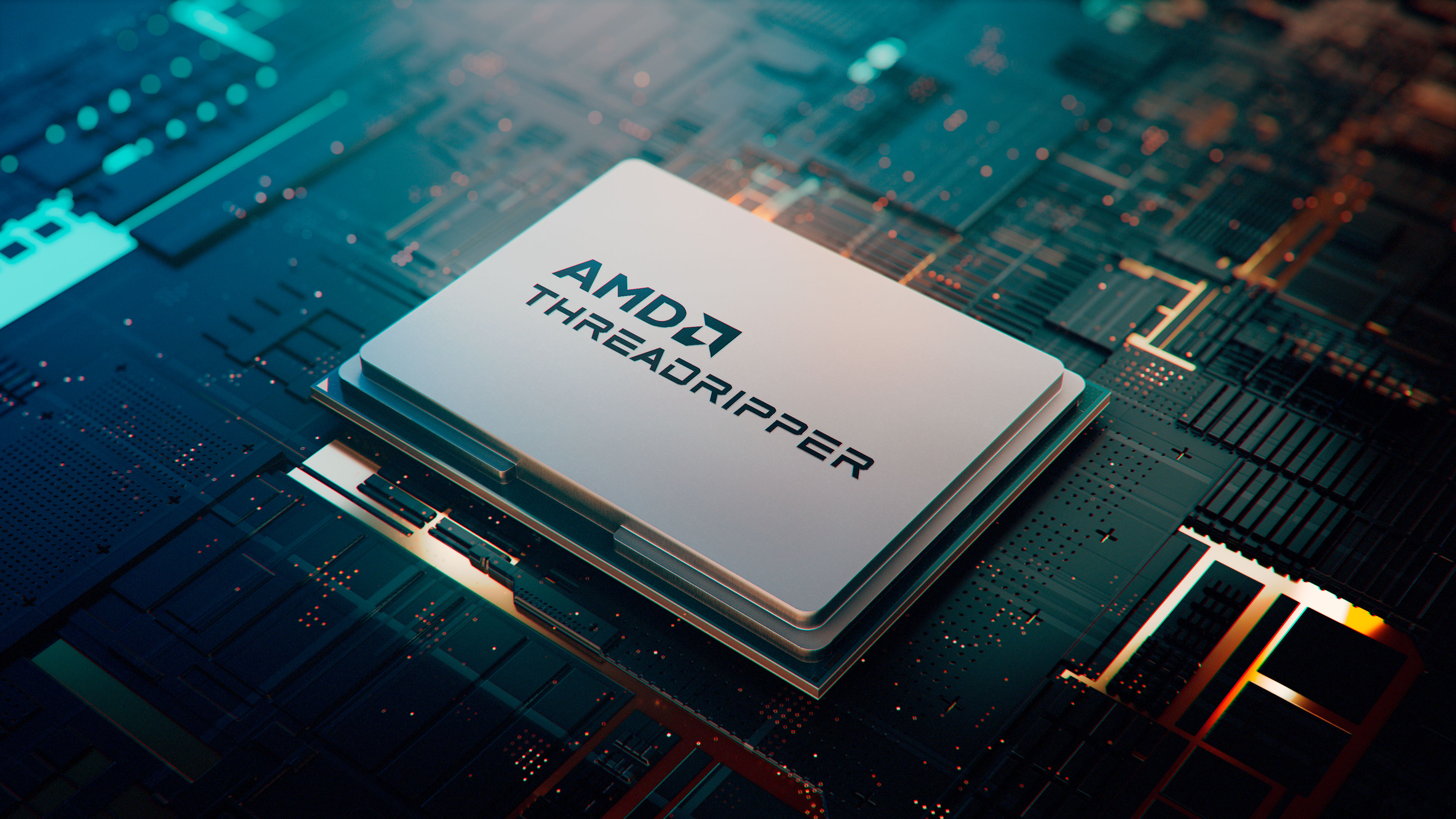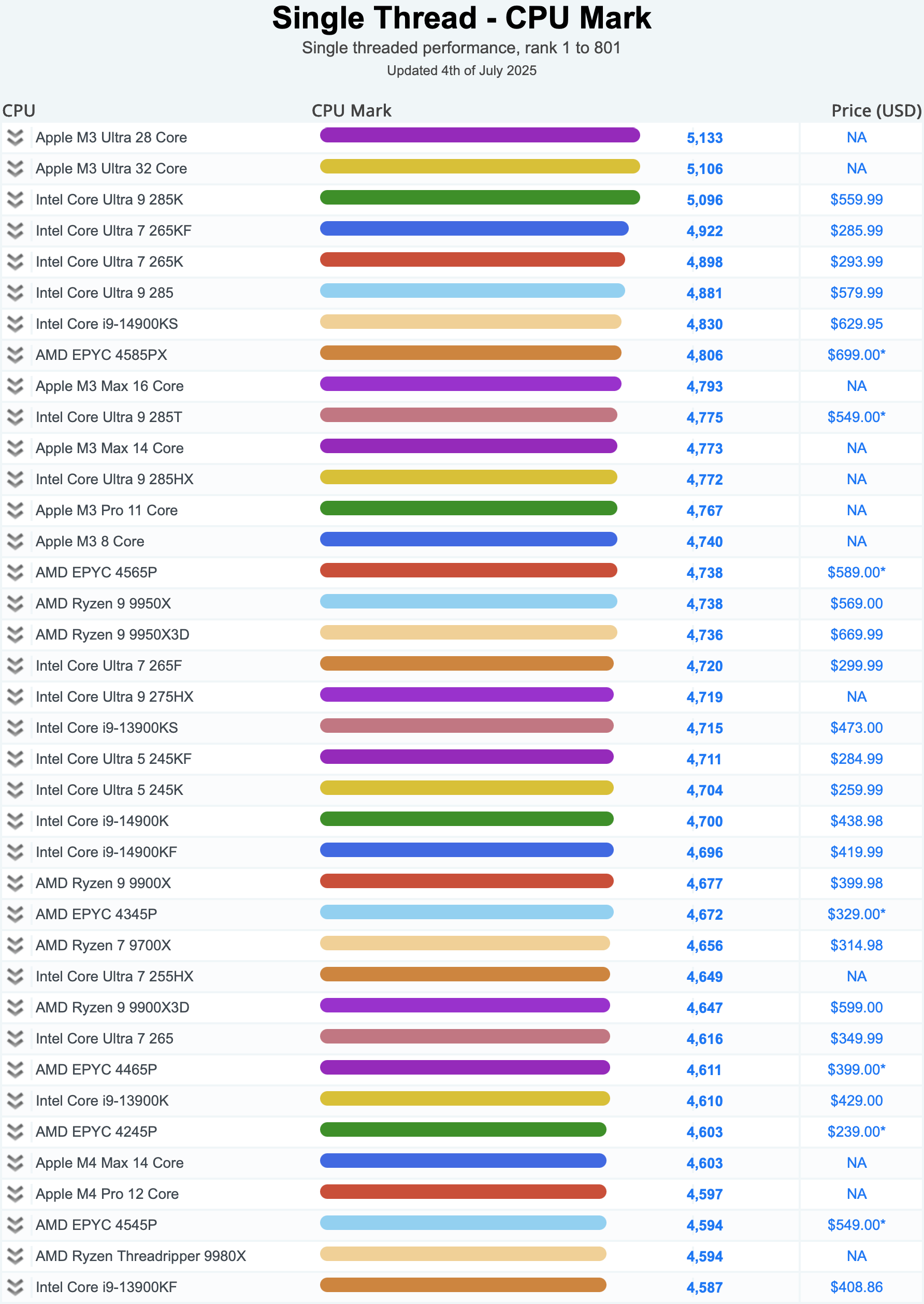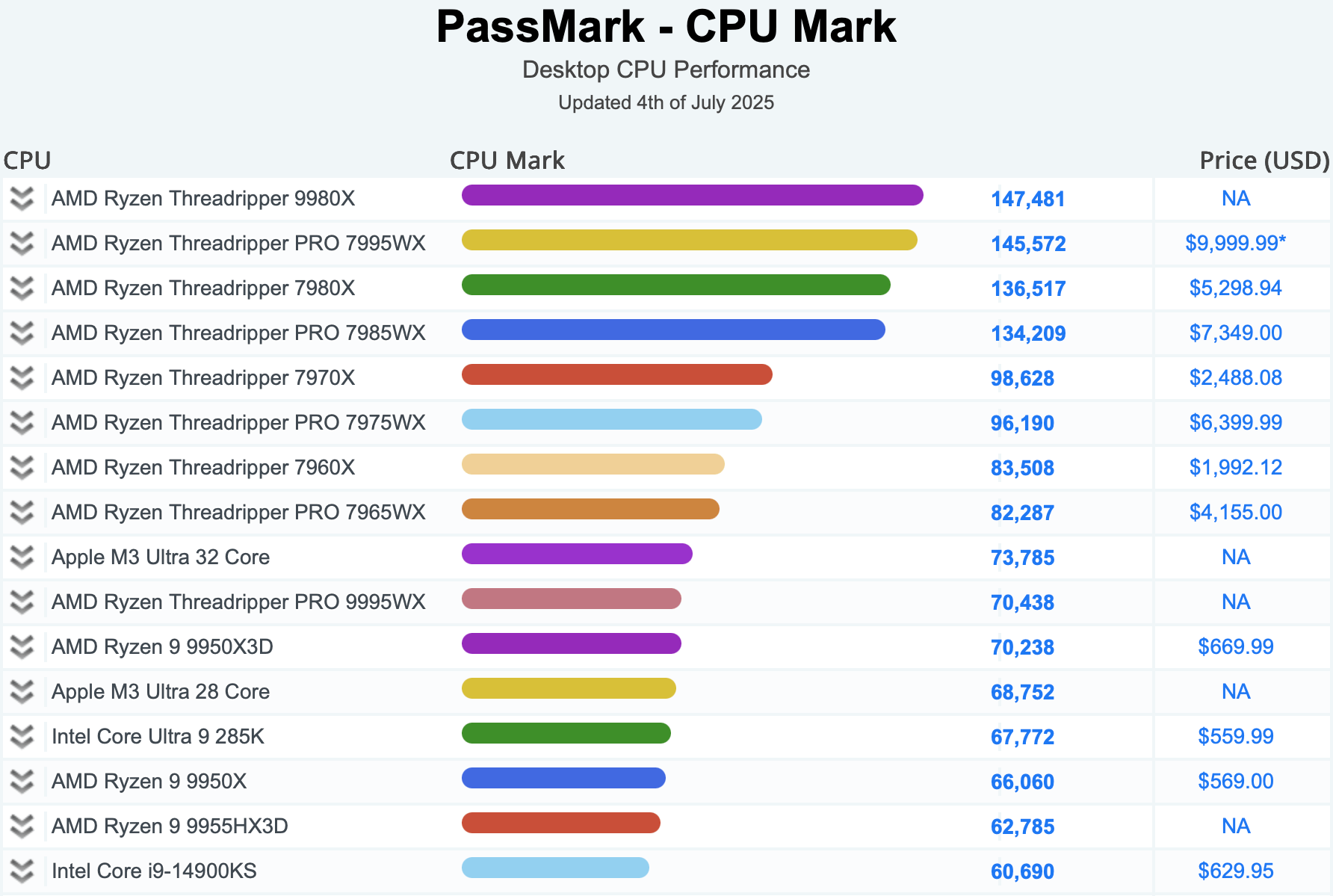New AMD Ryzen Threadripper smashes PassMark record — 9980X scores 147,481, making it the fastest desktop CPU ever tested, but only in multi-thread performance
Single thread is a different story...

Benchmark results of AMD's upcoming 64-core Ryzen Threadripper 9980X have been added to the PassMark database, and they are quite a mixed bag. On the one hand, the high-end desktop processor designed for creative professionals set the absolute record in PassMark's multi-threaded desktop CPU test, as observed by NotebookCheck. But on the other hand, the processor's results were rather unimpressive in the single-thread test, which is barely surprising given the positioning of the unit. Still, keep in mind that we might be dealing with a pre-production CPU.
AMD's 64-core Ryzen Threadripper 9980X scores 147,481 points in PassMark Multithread CPU Mark, leaving behind 96-core Ryzen Threadripper Pro 7995WX (145,572), its direct predecessor, Ryzen Threadripper 7980X (136,517), and outperforming Apple's 32-core M3 Ultra (73,785) and AMD's 16-core Ryzen 9 9950X3D (70,238) by more than double. While it is logical that the Ryzen Threadripper 9980X beats its predecessor with the same core count, it is very surprising that it manages to beat the 96-core CPU, although by a slim margin.
PassMark CPU test measures performance across a variety of metrics, including those specifically built to scale with core/thread count. For example, Compression, Encryption, and Physics tests will spin up as many threads as the CPU has. Therefore, it is unexpected that the 64-core processor has beaten a 96-core processor in this test.
When it comes to single-thread CPU performance in PassMark, not everything is that rosy for AMD's 64-core Ryzen Threadripper 9980X CPU with an up to 5.40 GHz single-core clock. The unit scores 4,594 points, which is on par with Apple's 14-core M4 Max (up to 4.50 GHz, 4,603 points) or Intel's 24-core Core i9-13900KF (up to 5.80 GHz, 4,587 points). However, due to relatively low clocks of the model 9980X and peculiarities of the Zen 5 microarchitecture, the Ryzen Threadripper 9980X is dramatically behind Apple's 28-core M3 Ultra (5,133 points, up to 4.05 GHz) and Intel's Core Ultra 9 285K (5,096 points, up to 5.70 GHz). Yet, it is not that significantly behind the Ryzen 9 9950X3D/9950X (4738/4736 points, up to 5.70 GHz).

AMD's Ryzen Threadripper 9980X is a 64-core CPU that belongs to the Shimada Peak family and is based on the Zen 5 microarchitecture. The processor supports AMD's simultaneous multi-threading (SMT) technology, operates at 3.20 GHz – 5.40 GHz, and is equipped with 64MB of L2 cache as well as 256MB of L3 cache. AMD positions such CPUs for those who want to have ultimate performance in games as well as professional-grade applications, and would even like to overclock their processors or tweak performance using other means.
| Row 0 - Cell 0 | Cores/Threads | Base Clock | Turbo Clock | L3 Cache | TDP |
Ryzen Threadripper Pro 9995WX | 96/192 | 2.50 GHz | 5.40 GHz | 384 MB | 350W |
Ryzen Threadripper 9980X | 64/128 | 3.20 GHz | 5.40 GHz | 256 MB | 350W |
Ryzen 9 9950X3D | 16/32 | 4.30 GHz | 5.70 GHz | 128 MB | 170W |
Ryzen 9 9950X | 16/32 | 4.30 GHz | 5.70 GHz | 64 MB | 170W |
When compared to AMD's flagship workstation-grade Ryzen Threadripper Pro 9995WX CPU, the model 9980X has fewer cores but higher clocks, which enables it to perform well both in games and professional applications (unlike the 9995WX, which is primarily aimed at multi-threaded workloads with its 96 cores). However, when compared to AMD's Ryzen 9 9950X3D and 9950X, the model 9980X has four times more cores, but considerably lower clocks, which means that it is dramatically faster in multi-threaded professional workloads, but is noticeably slower in games.
AMD is set to start sales of its next-generation Ryzen Threadripper 9000-series processors later this month, which is when the first reviews of these CPUs from independent laboratories will be published, and we will be able to draw a more detailed opinion about the performance of these devices.
Get Tom's Hardware's best news and in-depth reviews, straight to your inbox.
Follow Tom's Hardware on Google News to get our up-to-date news, analysis, and reviews in your feeds. Make sure to click the Follow button.

Anton Shilov is a contributing writer at Tom’s Hardware. Over the past couple of decades, he has covered everything from CPUs and GPUs to supercomputers and from modern process technologies and latest fab tools to high-tech industry trends.
-
Mr.McCoy No one would buy a Threadripper for single core use, so I fail to see why it's even mentioned.Reply -
usertests Reply
Intel makes the majority of CPUs, because they make them in volume for businesses. So when I check the bargain bin in a few years, a perfectly capable Arrow Lake system should be in there.Firestone said:More great work from AMD. Does Intel still make CPUs?
